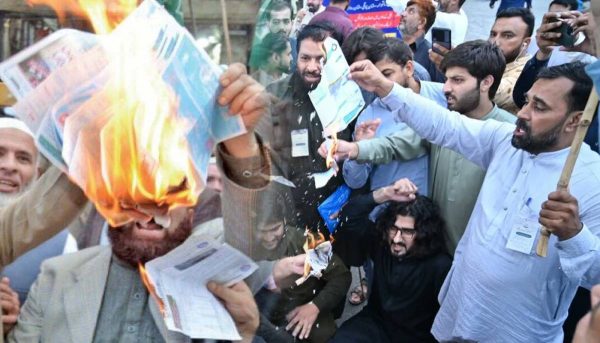by RAFIA ZAKARIA

The situation in the country has become dire. For the past year, nearly every month has brought with it a feeling of foreboding. This, many Pakistanis routinely tell themselves, is certainly the lowest and worst point.
To offset paying more than double the usual price for basic goods, they ration every drop of petrol by seeking alternative transportation options, buying less food, cheaper food, the cheapest food — but nothing seems to work. The continuing political instability, one government after another, the ever-looming threat of military intervention and the general uncertainty have not helped the situation.
All of this has happened, but there seems to be more in the offing. The regular hikes in the price of petrol, the imposition of electricity tariffs and increase in the sales tax have all turned an already unbearable situation into one that is potentially catastrophic.
Despite holding cabinet meetings on the issue of high electricity rates — a consequence of the deal with the IMF — the caretaker prime minister is unable to act against the exorbitant tariffs. Human Rights Watch has requested the IMF to review the impact of economic adjustments in countries where vulnerable groups will be affected. However, so far that help has not been forthcoming here.
There are only so many corners to cut, only so much water added to milk, sawdust added to flour and pebbles eaten with lentils. After some time, there is only water and no milk, only sawdust and no flour and only pebbles and no lentils. The latest increase in prices, which is apparently necessary to sustain the deal with the IMF, points to such a situation. For political scientists researching political decisions, matters proceed according to what people assess to be in their self-interest.
But such calculations break down when the people have nothing to lose. In Pakistan, there will soon be millions of people whose lives have been so utterly wrecked by unchecked inflation and the unaffordability of even basic goods that their reactions to hunger, homelessness and hopelessness will be entirely unpredictable.
Those whose lives are not immediately threatened by the unavailability of food and housing will possibly die in other ways. For instance, one of the major industries in Pakistan that is being affected by the economic crisis is the pharmaceutical industry. Banks are unwilling to open letters of credit due to the continuing lack of foreign exchange. For the current set-up, the pharmaceutical industry is an area of concern.
The foreign exchange shortage means that the country may be hurtling towards a dearth of lifesaving drugs and the raw material needed to manufacture them. One example of this was when Panadol became unavailable last year. While it is not a lifesaving drug, the fact that there was a shortage of such a commonly used medicine, which then persisted, reveals the weaknesses in the market.
Dawn for more
